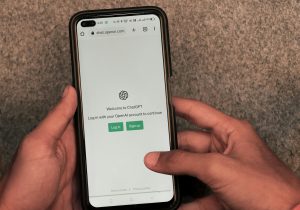Why people are hating the idea of using ChatGPT as a therapist?
Understanding the Skepticism Toward Using ChatGPT as a Mental Health Tool
In recent times, the concept of utilizing AI-powered chatbots like ChatGPT for mental health support has sparked a substantial debate. While some individuals are exploring these technologies as supplementary resources, many professionals and users remain cautious or even dismissive. This article aims to provide a balanced perspective on the ongoing discourse and explore why there’s hesitancy around adopting AI as a mental health aid.
The Concerns Surrounding AI in Therapy
One primary concern stems from the reliability of AI-driven responses. Critics argue that, like any tool, chatbots can produce inaccurate or misleading information. When it comes to mental health, the stakes are particularly high, as incorrect advice can potentially exacerbate issues rather than alleviate them. Consequently, many emphasize the importance of consulting licensed mental health professionals over automated systems.
The Importance of Critical Evaluation
A common recommendation in the use of AI for emotional support is to maintain a critical perspective. Users are encouraged to view chatbot outputs as supplementary rather than definitive solutions, understanding that AI lacks human empathy and nuanced understanding. This critical approach helps mitigate risks associated with over-reliance on automated advice.
Personal Experiences with ChatGPT
Despite widespread skepticism, individual experiences can be compelling. Some users have reported that ChatGPT provides clear, understandable explanations of complex mental health topics, sometimes surpassing their expectations from traditional therapy sessions. For example, one user noted that ChatGPT’s insights helped them better understand their emotional responses and that the practical tips it provided were effective in managing their mental health challenges.
Balancing Technology and Human Support
While AI tools like ChatGPT can be valuable for gaining insights and immediate support, they are best used as complementary resources alongside professional therapy. Human therapists possess the empathy, intuition, and contextual understanding that AI currently cannot replicate. As such, integrating AI-assisted tools into a broader mental health strategy may enhance overall well-being, provided users remain cautious and discerning.
Conclusion
The debate over using ChatGPT as a therapeutic aid underscores the complexity of integrating emerging technologies into sensitive areas like mental health. It’s crucial to recognize both the potential benefits and limitations of AI chatbots. When used thoughtfully and critically, these tools can serve as effective supplementary resources, empowering individuals on their journey toward better mental health. However, they should not replace professional guidance, especially in serious cases requiring personalized care.
Disclaimer: Always consult with qualified mental health professionals for personalized advice and treatment. AI tools are designed














Post Comment